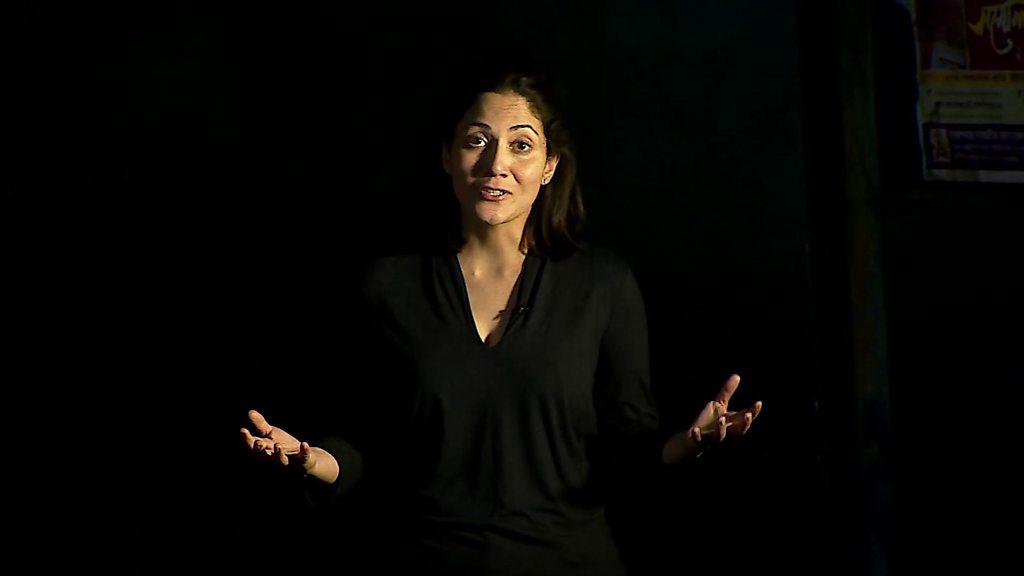Rohingya refugees in Bangladesh battle monsoon landslides and floods
- Published
Thousands of people have been relocated and at least one person has died after Rohingya refugee camps in Bangladesh were battered by heavy monsoon rain.
Weather warnings suggest the downpour is likely to continue.
According to UNICEF, more than 3,000 families have been affected. The International Organization for Migration (IOM) said it had relocated thousands of refugees in recent days.
The camps house more than 700,000 Rohingya refugees.
The Rohingya are a Muslim minority group who have fled Myanmar in their hundreds of thousands to escape persecution.
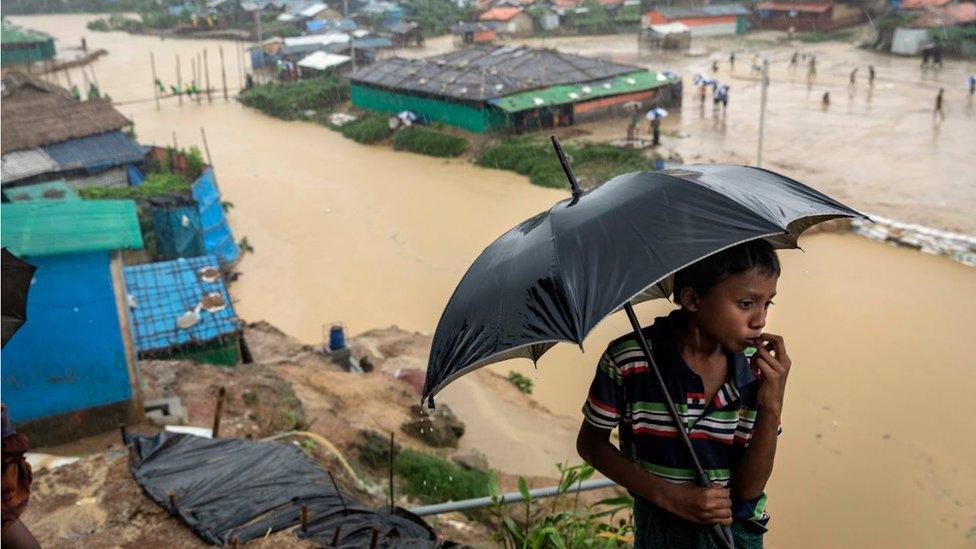
Nine-year old Mohamed Ibrahim lives in Camp 6 in of the Kutapalong Mega camp in Cox's Bazar
George McLeod, a spokesman for the IOM, told the BBC the crisis was "worsening the already difficult conditions faced by the refugees who fled Myanmar in mid-2017".
"We've seen hundreds of cases of people whose houses were severely damaged by landslides and flooding as well as many others who were threatened by vulnerable slopes. These people have had to be relocated either to emergency shelters or relatives' houses," he said.
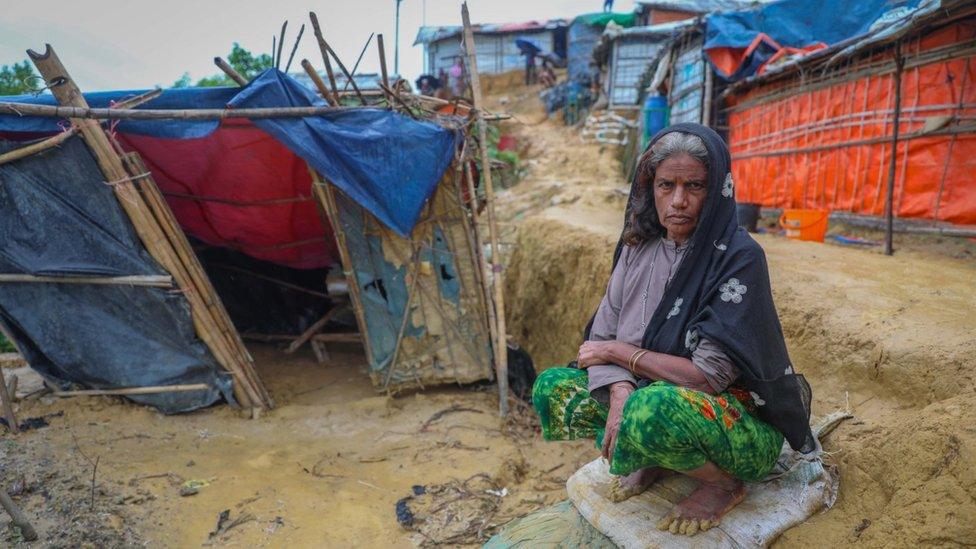
The camps' sandy soil easily washes away in heavy rain
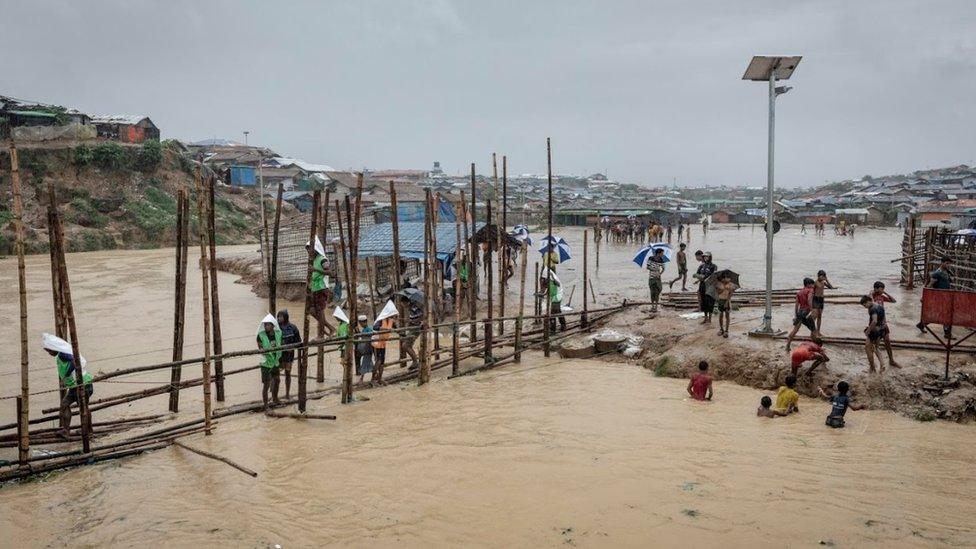
Many of the bridges connecting the camps have been swept away or damaged
The landslides have killed at least one person, aid officials said on Sunday. Among the hardest hit and most vulnerable in the camps are children, and many shelters, schools and health centres have been affected and damaged.
The camps are located on sandy soil which easily washes away in heavy rain, leading to the dangerous landslides and floods.
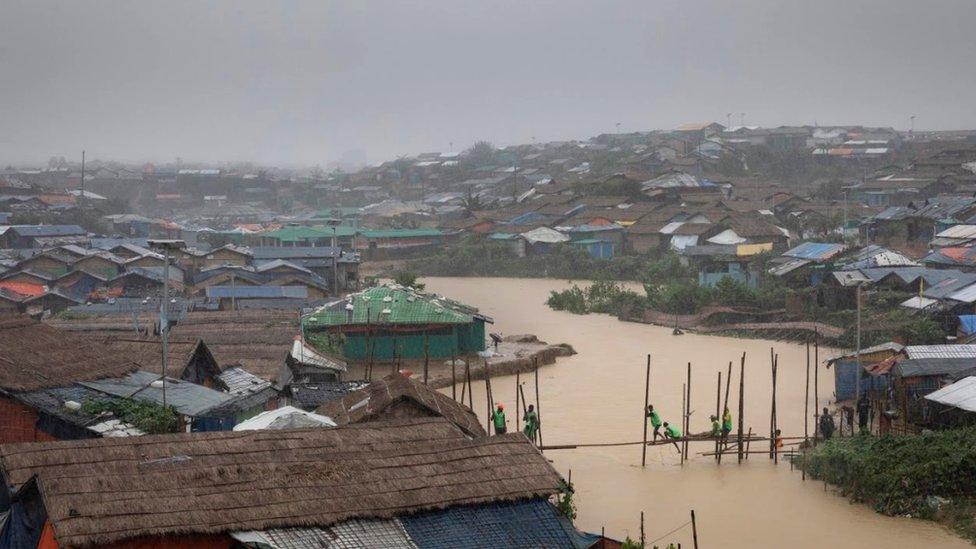
The camps house more than 700,000 Rohingya refugees
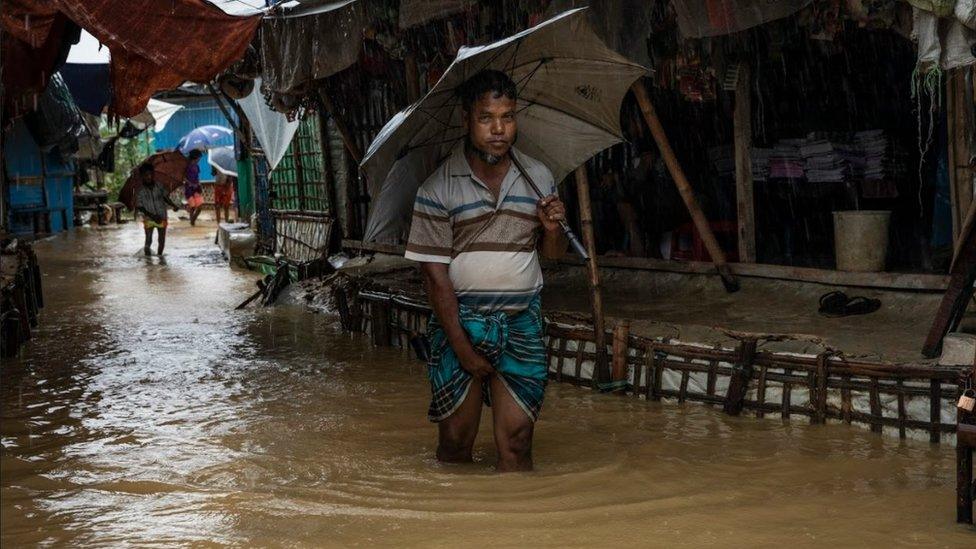
Most of the market stalls in Camp 6 are closed because of the flooding
The children's charity UNICEF said it was working to reduce risks of diarrheal outbreaks in the camps.
In 2017, monsoon storms killed 170 people in the refugee camps in Bnagladesh. Last year, UN agencies moved 30,000 Rohingya out of areas at high risk of landslides and floods.
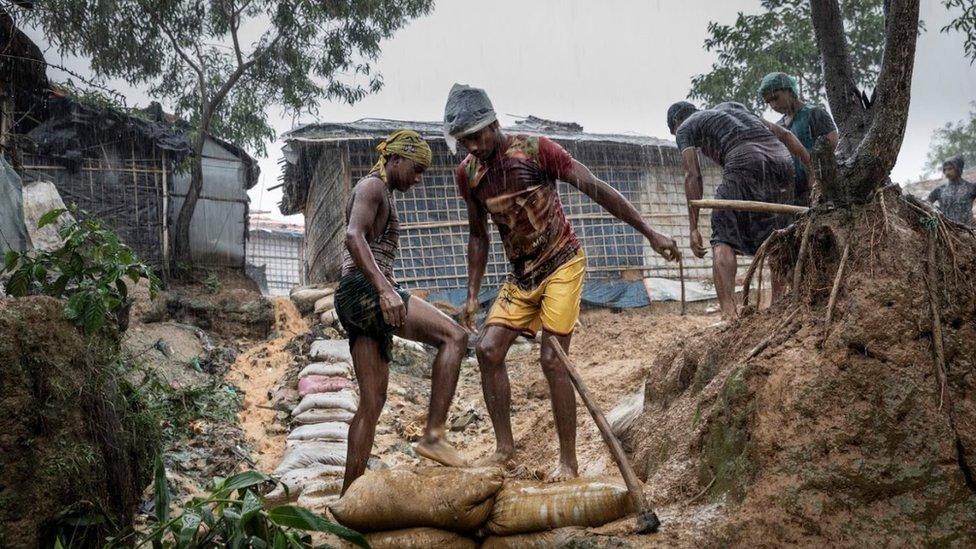
Many house were simply swept away while others remain threatened
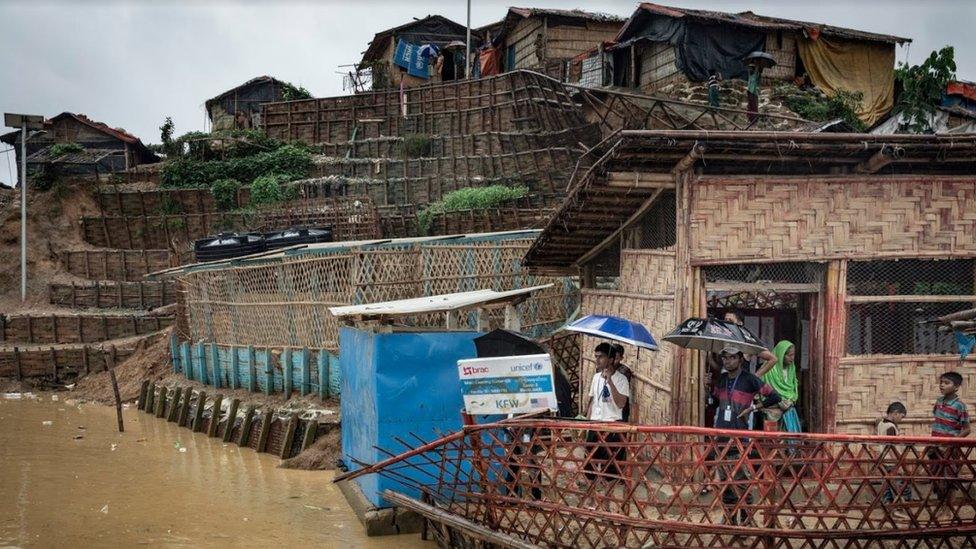
More heavy downpours are expected, with four months of the monsoon to go
Since 2017, more than 700,000 of Rohingya have fled Myanmar for Bangladesh because of the destruction of their homes and persecution in Myanmar's northern Rakhine province.
The United Nations described the military offensive against the Rohingya in Rakhine as a "textbook example of ethnic cleansing". Myanmar's military claims it is fighting Rohingya militants and it denies targeting civilians.
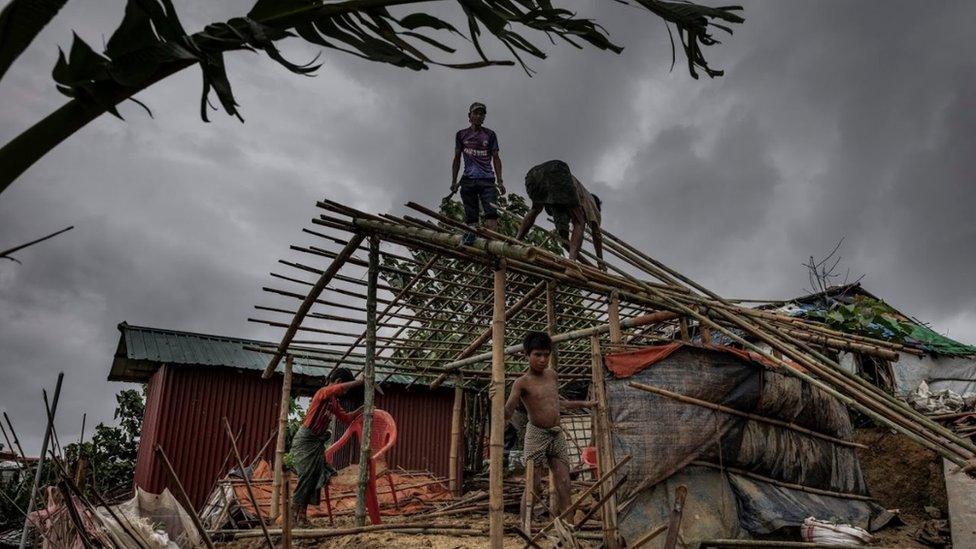
Days of continuous rain have destroyed hundreds of shelters in the camps
.
- Published19 September 2018
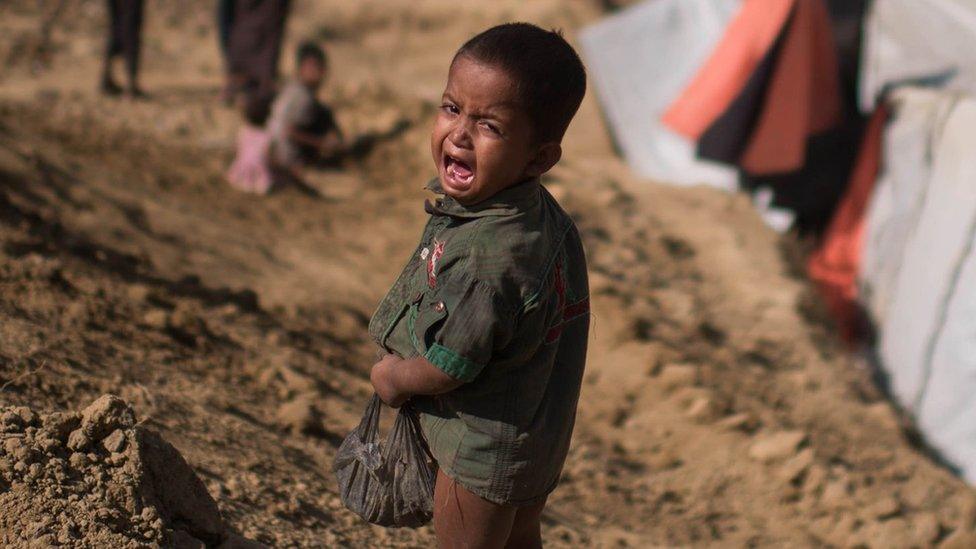
- Published28 December 2018
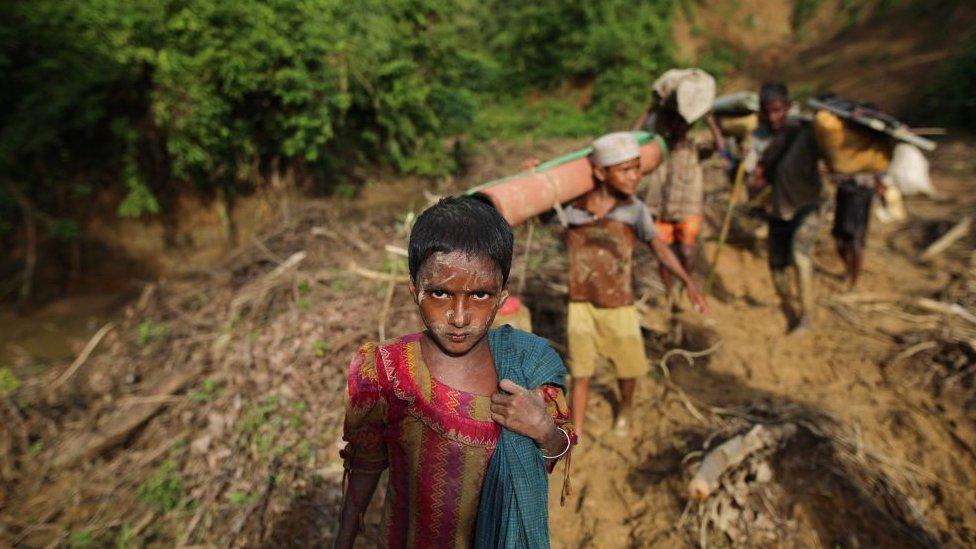
- Published27 August 2018
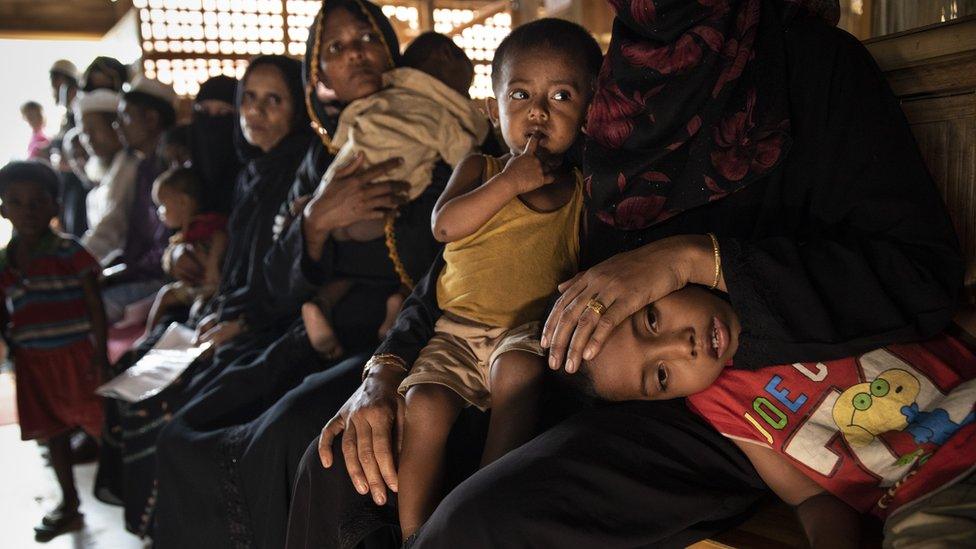
- Published20 March 2018
